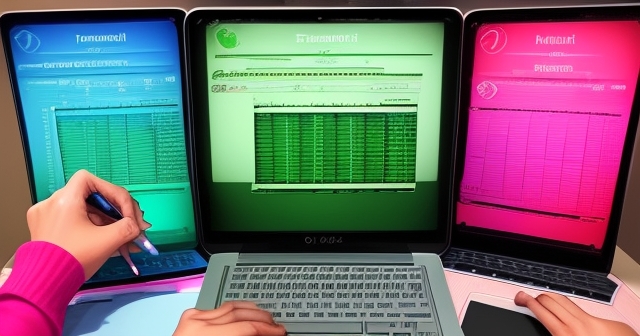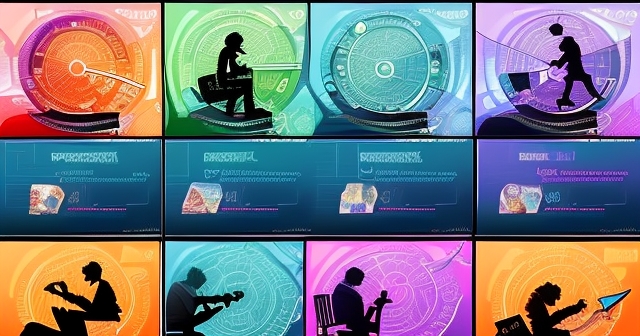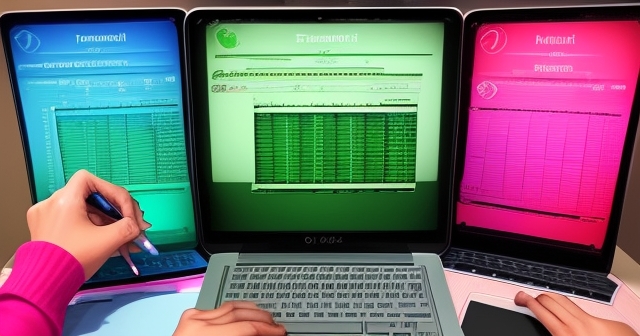“`html
Decoding the Forex Trading Dream: Reality, Risks, and Mentorship in the UK
In recent years, particularly against the backdrop of global economic shifts and increased unemployment, you may have noticed a surge in discussions around online trading, specifically the Forex market. Social media platforms, especially Instagram, have become vibrant stages where aspiring traders and mentors alike showcase lifestyles punctuated by luxury cars, exotic holidays, and the alluring promise of “financial freedom.” It’s a powerful narrative, especially for those seeking alternative income streams or feeling disillusioned with traditional career paths.

This rise in interest is particularly palpable in the UK, where the economic uncertainties of the pandemic and beyond have led many, especially young people, to explore new avenues for wealth creation. The foreign exchange market, with its 24/5 accessibility and high leverage potential, seems like a tantalizing opportunity. But as with many things that appear too good to be true, a deeper look reveals a complex landscape fraught with significant risks and often misleading claims.
Our goal here isn’t to dismiss the Forex market entirely. It is, after all, a legitimate, multi-trillion-dollar marketplace essential for global commerce. However, our purpose, aligning with our mission to help you master professional knowledge, is to peel back the layers of hype surrounding retail Forex trading and its associated mentorship programs. We want to equip you with the understanding to distinguish genuine opportunities from speculative pitfalls, the reality of the market from the filtered perfection of social media feeds.
Think of us as your guide through this intricate world. We’ll break down the mechanics of Forex, explore the business models of the education providers you might encounter, highlight the crucial warnings from experts, and discuss what constitutes a truly professional approach to trading. Are you ready to look beyond the glossy advertisements and confront the challenging, yet potentially rewarding, reality?
The Allure of “Financial Freedom” on Social Media
Scroll through platforms like Instagram or YouTube, and you’re likely to encounter individuals flaunting lavish lifestyles, crediting their success to Forex trading learned through a specific course or mentorship program. They speak of quitting their jobs, working from anywhere with just a laptop, and achieving true “financial freedom.” This portrayal is undeniably attractive, speaking directly to aspirations for autonomy and wealth.
This marketing strategy leverages powerful psychological triggers. It taps into the desire for a better life, offering a seemingly simple solution to complex financial problems like debt or job insecurity. The narrative often involves a rags-to-riches story, positioning the mentor or trainer as someone who has “cracked the code” and is now magnanimously sharing it with you. The use of testimonials, screenshots of supposed profits, and images of luxury are designed to build aspiration and trust – trust often placed in individuals who may lack formal financial qualifications or a verifiable track record in professional trading environments like investment banks or hedge funds.
These promotional efforts frequently emphasize the accessibility of online trading, suggesting that anyone, regardless of their background or experience, can quickly become proficient and profitable. They might minimize the steep learning curve, the emotional challenges, and the significant capital required to achieve meaningful, sustainable returns. It’s crucial to understand that the primary business of many who promote this lifestyle on social media is often not profitable trading itself, but the sale of the education or mentorship package.
Have you ever seen one of these posts or advertisements? What were your initial thoughts? It’s easy to get swept up in the possibility, isn’t it? Our job is to help you ground those possibilities in reality and make informed decisions.
The Harsh Reality: Why Most Retail Forex Traders Struggle
The appeal of Forex trading for retail traders lies partly in its structure. It allows individuals to speculate on currency price movements using relatively small amounts of capital due to the availability of high leverage. However, this very feature—leverage—magnifies both potential profits and, crucially, potential losses. A small adverse price movement, amplified by high leverage, can wipe out an entire trading account quickly.
The **Forex market** is the largest and most liquid financial market globally, driven by massive participants like central banks, commercial banks, multinational corporations, and large investment firms. These entities trade for reasons ranging from facilitating international trade and investment to managing currency risk and executing large-scale speculative strategies. Retail traders, by comparison, are tiny fish in a vast ocean.
Expert analysis consistently shows a stark reality for individual traders. Studies and data from regulators like the Financial Conduct Authority (FCA) in the UK and others internationally indicate that a vast majority of retail traders lose money. Figures often cited suggest that **over 80%** of individual traders fail to make a sustained profit, with many losing their initial deposit entirely. Why is this the case?
Several factors contribute to this high failure rate:
- High Volatility: Currency prices can be highly volatile, reacting quickly and unpredictably to economic news, political events, and shifts in global sentiment. This requires constant monitoring and quick decision-making.
- Transaction Costs: While seemingly small (spreads and commissions), these costs add up over frequent trades, eroding potential profits.
- Leverage Risk: As mentioned, leverage can lead to rapid and substantial losses. It requires disciplined risk management, which many beginners lack.
- Emotional Discipline: Trading is emotionally taxing. Fear, greed, impatience, and overconfidence can lead to poor decisions, deviating from a trading plan.
- Lack of Genuine Expertise: Many aspiring traders lack a deep understanding of **fundamental analysis** (how economic data affects currencies), **technical analysis** (reading charts and patterns), and, most importantly, **risk management**.
- Competition: You are competing against highly sophisticated, well-funded institutions with vast resources, advanced technology, and teams of experienced professionals.
Comparing retail Forex trading to “electronic roulette,” as some experts have, highlights the speculative nature and the overwhelming odds against the individual trader without proper knowledge and discipline. While the market itself is not a casino, engaging in undercapitalized, highly-leveraged speculation without a robust strategy and risk controls can certainly feel like gambling.
| Factors Contributing to Failure | Impacts |
|---|---|
| High Volatility | Demands constant monitoring |
| Transaction Costs | Erodes potential profits |
| Leverage Risk | Rapid and substantial losses possible |
| Emotional Discipline | Leads to poor trading decisions |
| Lack of Genuine Expertise | Increased chances of errors |
The Business Behind the Education: Costs and Business Models
Given the high failure rate in retail trading, you might wonder, who is consistently profiting from the surge in interest? Often, it’s the companies providing the education and the brokers facilitating the trades (though a discussion of broker business models is a topic for another time). The business of selling **Forex education** and **mentorship** has become incredibly lucrative.
The cost of these programs varies dramatically. You might encounter fees ranging from a few hundred pounds for basic online courses to tens of thousands of pounds for intensive, multi-week mentorship programs or live trading floor experiences. We’ve seen reported figures like £240+ per month for subscription-based models, one-off courses costing £4995, and elite packages soaring past £13,000 or even £19,000. Are these costs justified by the knowledge and skills imparted? That’s a critical question you must ask.
| Program Type | Cost |
|---|---|
| Basic Online Courses | A few hundred pounds |
| One-off Courses | £4995 |
| Subscription-based Models | £240+ per month |
| Elite Packages | £13,000 to £19,000 |
Investigations into some of these education providers, such as those reported concerning companies like IM Academy or Knowledge to Action (KTA), have raised concerns about the value proposition. Critics point to hard-sell tactics, pressure to sign up quickly, and high upfront costs with limited avenues for refunds, even if the program isn’t suitable or doesn’t deliver on its implied promises of profitability.
Furthermore, some business models incorporate elements that shift the focus from trading education to recruitment. Participants might be encouraged, or even incentivized, to refer new customers. In some structures, a significant portion of the compensation for “mentors” or “coaches” might come from recruiting new students rather than from demonstrating consistent trading profitability themselves. This multi-level marketing (MLM) style approach raises serious questions about whether the primary product being sold is genuinely valuable trading knowledge or the opportunity to earn commission by selling the program to others.
Understanding the financial incentives of the people selling you education is paramount. Is their main income derived from trading the market successfully, or from selling courses about trading? This distinction is vital for assessing the credibility and potential value of the program being offered.

If you’re considering paying for trading education, especially expensive programs, ask for clear details on what you’ll learn, the qualifications and verifiable trading experience of your instructors, and what realistic outcomes to expect. And remember, no reputable educational institution or mentor can guarantee trading profits. Anyone who does is likely making unrealistic claims.
If you’re starting your journey into Forex trading and are looking for a platform to gain experience and access a wide range of instruments, Moneta Markets is a platform worth considering. Hailing from Australia, it offers over 1000 financial instruments, suitable for both beginners and experienced traders.
Questionable Expertise and Red Flags in Training
A significant concern in the unregulated or loosely regulated space of trading education is the variable quality and background of the instructors. While some programs are run by individuals with verifiable professional trading experience from institutions like investment banks, others may employ trainers who were themselves recent students of the same program or whose trading experience is limited to retail accounts without external verification.
The lack of transparency regarding trainer qualifications is a major red flag. When seeking education, you deserve to know who is teaching you and what their actual trading track record is, ideally in a professional, audited capacity, not just anecdotal success stories. A good question to ask is: “What is your verifiable trading history and what are your qualifications outside of this specific training company?”

Another red flag is the de-emphasis or outright dismissal of the significant risks involved in trading. Programs that primarily focus on showcasing potential profits while glossing over the high probability of losses are providing an incomplete, and potentially dangerous, picture. Professional trading education puts **risk management** front and centre, teaching you how to preserve capital as the top priority.
Be wary of programs that promise quick riches, automated solutions, or “secret strategies” that guarantee success. Such claims are antithetical to the reality of trading, which requires hard work, continuous learning, discipline, and adaptability. Trading is a skill that takes time and effort to develop, much like mastering any other complex profession.
We’ve heard accounts of pressure to make trading decisions based on signals or advice from mentors without fully understanding the underlying analysis or risk. This dependency hinders your development as an independent trader, which should be the ultimate goal of any education. True mentorship empowers you to make your own informed decisions, not blindly follow instructions. Here are some additional points to consider when assessing a training program:
- Assess Transparency: Look for open discussions around potential losses and risks.
- Verify Credentials: Research instructors’ backgrounds thoroughly.
- Consider Course Structure: Ensure the course offers a comprehensive curriculum addressing key trading concepts.
Recognizing these red flags is crucial for protecting your capital and time. Before committing to any program, perform thorough due diligence. Look for independent reviews (not just testimonials on their site), verify credentials where possible, and be skeptical of overly aggressive sales tactics or promises that seem too good to be true.
What Real Forex Education Actually Looks Like
So, if social media hype and expensive, questionable programs are prevalent, what does legitimate, professional Forex education entail? It’s a comprehensive process that goes far beyond simply identifying potential trades. It builds a foundation of knowledge, skills, and psychological resilience.
A robust Forex training program, often delivered by reputable institutions or experienced professional traders (like those who might work for or have worked at a broker, bank, or hedge fund), should cover the following core components:
- Market Fundamentals: Understanding the economic drivers of currency movements. This includes key economic indicators (like GDP, Inflation, unemployment figures), central bank policies (interest rates, quantitative easing), geopolitical events, and how these factors influence currency pairs like EUR/USD, GBP/JPY, or GBP/USD. This is **fundamental analysis**.
- Technical Analysis: Learning to read price charts, identify patterns (like support and resistance, trends, chart formations), and use technical indicators (moving averages, oscillators) to gauge market sentiment and potential entry/exit points. This requires understanding chart types, timeframes, and the statistical probabilities behind patterns.
- Risk Management: This is arguably the most critical component. It involves learning how to size your positions correctly based on your capital and risk tolerance, setting stop-loss orders to limit potential losses, and managing your overall portfolio risk. Professional traders prioritize capital preservation above all else. You cannot make profits if you’ve lost all your capital.
- Trading Psychology: Mastering your emotions is essential. Education should address how fear, greed, hope, and regret impact trading decisions and provide strategies for maintaining discipline, sticking to a trading plan, and handling both wins and losses effectively.
- Trading Plan Development: A good program teaches you how to create and backtest a detailed trading plan, including your strategy, risk rules, and daily routine, and the importance of sticking to it rigidly.
- Practical Application: This should include practice trading on demo accounts before risking real capital, and potentially live trading sessions or trade reviews with experienced mentors to learn from real-time examples and feedback.
One fundamental aspect for effective learning includes practical engagement, where aspiring traders apply their theoretical knowledge in simulated environments. Additionally, mentorship plays a crucial role. Reputable training often involves experienced mentors who can guide you, share their insights, and provide constructive feedback on your trading. Programs like the one historically offered by Forexmentor (established in the early 2000s) or more structured programs that might be CPD certified emphasize a curriculum-based approach and practical application, rather than relying solely on charismatic personalities or lifestyle marketing.
| Key Components of Education | Description |
|---|---|
| Market Fundamentals | Understanding key economic indicators |
| Technical Analysis | Learning to read price charts |
| Risk Management | Learning to size positions correctly |
| Trading Psychology | Mastering emotional impact on trading |
| Practical Application | Practice trading on demo accounts |
Ask yourself: Does the program I’m considering cover all these areas in depth? Does it prioritize risk management? Are the instructors’ qualifications clear and verifiable? These questions are vital for assessing the quality of the education.
Navigating the Landscape: How to Spot Legitimate vs. Misleading Programs
With the proliferation of online trading education, particularly heavily promoted on social media, how can you, as an aspiring trader, sift through the noise and find potentially valuable resources while avoiding the pitfalls?
Here are some steps you can take to perform due diligence:
- Be Skeptical of Hype and Lifestyle Marketing: If a program’s marketing heavily features luxury goods, unrealistic income claims, and pitches “financial freedom” as a quick and easy outcome, approach it with extreme caution. Legitimate trading is hard work, not a shortcut to overnight wealth.
- Research the Instructors’ Backgrounds: Try to verify the trading experience and qualifications of the people who will be teaching you. Do they have experience in regulated financial institutions? Can they demonstrate a verifiable trading track record over a significant period?
- Look for Transparency on Risks and Costs: A trustworthy program will be upfront and clear about the inherent risks of Forex trading. They will also have transparent pricing without hidden fees or aggressive upselling tactics.
- Read Independent Reviews (Carefully): Look for reviews on reputable, independent platforms, not just testimonials on the company’s own website. Be aware that some negative reviews might be manufactured, but a pattern of complaints about hard sells, unmet promises, or unqualified trainers is a major warning sign.
- Understand the Business Model: Is the program’s revenue primarily from selling courses, or do the principals also manage significant trading capital? Does the model involve recruitment or commissions for signing up others? Recruitment-focused models often prioritize sales over education quality.
- Start Small or Use Demo Accounts: Before committing significant funds to a program or live trading, start with free resources, educational books, and practice extensively on a demo account provided by a regulated broker. See if you can apply what you learn consistently in a simulated environment.
- Check for Accreditation or Affiliation: While not a guarantee of quality, look for affiliations with recognized financial education bodies or professionals. Some programs offer certifications (like a CPD accreditation) which can indicate a level of formal structure, though you should still scrutinize the content and instructors.
- Avoid Pressure Tactics: Legitimate education providers will allow you time to consider your decision without pressuring you with limited-time offers or warnings that you’ll miss out if you don’t sign up immediately.
Making informed decisions requires patience and a critical eye. Don’t let the fear of missing out (FOMO) or the allure of quick profits rush you into a commitment you might regret.
Safer Paths to Engaging with Forex
If the world of Forex and currency markets interests you, but the risks and uncertainties of retail trading promoted online give you pause – and they should – what are some safer, more regulated, and potentially more sustainable paths to engaging with this market?
Financial experts often suggest that a more secure route for building a career or gaining experience in the foreign exchange world is by working within the established, regulated financial industry. Consider pursuing roles at:
- Banks: Commercial and investment banks have large foreign exchange departments. Working in roles related to currency trading, sales, research, or operations within a bank provides exposure to the market from a professional, institutional perspective.
- Brokerage Firms: Regulated Forex brokers employ staff in various capacities, including dealing, client service, compliance, and technology. This offers insight into the market’s mechanics and the regulatory environment.
- Asset Management Firms / Hedge Funds: Larger firms often trade currencies as part of their global investment strategies. Roles here might involve research, analysis, or trading support.
- Corporations: Large multinational corporations need people to manage their foreign exchange risk exposures resulting from international business operations. This is known as corporate treasury or currency risk management.
| Career Paths in Forex | Description |
|---|---|
| Banks | Exposure to forex trading departments |
| Brokerage Firms | Insights into market mechanics and regulations |
| Asset Management Firms | Roles supporting currency investments |
| Corporations | Managing currency risk for international operations |
These paths require traditional qualifications, skills, and often involve starting in entry-level positions to gain experience. However, they offer stability, structure, and the opportunity to learn from experienced professionals in a regulated environment. You gain exposure to how the market functions for its primary purpose – facilitating global business and investment – rather than just as a vehicle for individual speculation.
Another approach, if you are set on retail trading, is to prioritize comprehensive, independent education and start with minimal capital on a demo account with a **regulated broker**. Focus intensely on **risk management** and developing a consistent strategy before ever considering trading with real money. Understand that even with the best education, profitability is never guaranteed and losses are part of the process.
Choosing the right platform is a key step when you decide to venture into online trading. Moneta Markets stands out for its flexibility and technological edge. It supports popular platforms like MT4, MT5, and Pro Trader, combining high-speed execution with competitive spreads to offer a solid trading experience.
The Psychological Tug-of-War: Hype vs. Discipline
One of the most challenging aspects of trading, and one often overlooked in superficial training programs, is the psychological component. The human brain is wired for patterns and immediate gratification, neither of which aligns well with the realities of disciplined, probabilistic trading. Social media hype exacerbates this by feeding into desires for quick wins and effortless wealth.
When you see influencers flashing wealth and promising similar results, it triggers powerful emotions like envy, hope, and the fear of missing out. These emotions can override rational thinking and lead to impulsive, unplanned trades. The desire to replicate their apparent success can blind you to the inherent risks and the statistical probability of failure.
Successful trading requires immense emotional discipline. It means sticking to your trading plan even when you experience a loss (which will happen), avoiding overtrading out of boredom or impatience, not increasing your risk after a win (or a loss), and accepting that you will not win on every trade. It requires patience, resilience, and the ability to remain objective under pressure.
Many social media promotions sell the dream but fail to prepare you for the psychological grind. They sell the outcome (financial freedom) rather than the process (disciplined risk management, ongoing learning, emotional control). A legitimate education program will include substantial focus on **trading psychology**, helping you understand and manage your emotional responses to market fluctuations.
Developing this discipline takes time and conscious effort. It often involves self-reflection, keeping a trading journal to analyze your decisions (both good and bad), and seeking feedback from a mentor focused on helping you develop sound trading habits rather than just providing trade signals.
Are you prepared for the psychological challenge? It’s just as important, if not more important, than understanding charts or economic data. Don’t underestimate the mental game involved in trading.
The Role of Regulation and Professional Standards
In the United Kingdom, financial activities, including the services offered by Forex brokers, are overseen by the **Financial Conduct Authority (FCA)**. The FCA’s mandate is to protect consumers, maintain market integrity, and promote competition. Trading with a broker regulated by a reputable authority like the FCA provides crucial protections that dealing with unregulated entities does not.
FCA-regulated brokers must adhere to strict rules regarding capital requirements, client money segregation (meaning your funds are kept separate from the company’s operational funds), risk warnings, and dispute resolution. In the UK, clients of FCA-regulated firms may also be covered by the Financial Services Compensation Scheme (FSCS) in the event of the firm’s insolvency, up to a certain limit.
However, it is critical to understand that trading education and mentorship services themselves may not fall under the same stringent regulatory oversight as brokerage activities. While the *broker* facilitating the trades is regulated, the *person or company* providing the training might not be, unless they are providing regulated financial advice (which genuine trading education typically isn’t). This regulatory gap is part of what allows some less scrupulous education providers to operate with less accountability for the quality of their training or the accuracy of their marketing claims.
| Regulatory Oversight | Implications |
|---|---|
| FCA Regulation | Provides consumer protection |
| Lack of Oversight in Education | Potentially lower quality training |
When choosing a trading platform, looking for regulation is non-negotiable. If you are searching for a Forex broker that is regulated and can handle global trading, Moneta Markets holds certifications from multiple international regulators including **FSCA, ASIC, and FSA**. They also offer features like segregated funds, free VPS services, and 24/7 customer support, making them a strong option for many traders.
Professional standards in the financial industry extend beyond just regulation. They encompass ethical behaviour, transparency, and a commitment to acting in the client’s best interest. While trading education is different from financial advice, providers should still operate ethically, providing realistic expectations and accurate information about the risks involved. Unfortunately, as we’ve discussed, this isn’t always the case in the retail trading education space.
Always prioritize trading through a well-regulated broker and be acutely aware that the educational services you purchase may not offer the same level of consumer protection.
A Look at the History and Evolution of Forex Training
The concept of teaching individuals to trade Forex isn’t new. Companies like Forexmentor, for example, trace their origins back to the early 2000s. In those days, access to Forex trading was less widespread, and the educational landscape was perhaps less crowded and influenced by social media than it is today.
Early Forex education often focused heavily on technical analysis, charting patterns, and structured trading systems. Mentorship typically involved direct interaction with experienced traders, often through forums, webinars, or one-on-one sessions. While the quality varied, the marketing was generally less focused on immediate wealth and lifestyle and more on understanding market mechanics and applying specific strategies.

Over time, as technology advanced and online trading became more accessible to the general public, the education industry evolved. The rise of social media provided a powerful new marketing channel, transforming how trading opportunities were presented. The emphasis shifted, for some providers, from teaching the fundamentals of market analysis and risk management to promoting the aspirational lifestyle that could allegedly result from successful trading.
This evolution isn’t inherently negative; technology has made education more accessible through online courses and platforms. However, it has also lowered the barrier to entry for individuals and companies offering education, regardless of their qualifications or ethical standards. This makes the task of discerning quality and credibility much more challenging for you as a potential student.
Understanding this historical context can help you appreciate the difference between older, more structured approaches (like those focused on pure technical analysis or fundamental understanding) and the newer, social-media-driven models that often prioritize lifestyle marketing. Both approaches exist today, but the latter is often louder and more pervasive in the digital space.
When evaluating a program, consider its history and how long it has been operating. While newer companies aren’t necessarily bad, a longer track record *might* (but doesn’t guarantee) more established processes and experienced educators.
Conclusion: Trading with Eyes Wide Open
The world of Forex trading holds genuine opportunities, but primarily for those who approach it with a realistic perspective, rigorous education, robust risk management, and significant discipline. The narrative of easy money and immediate “financial freedom” promoted through much of social media **Forex mentorship** is, for the vast majority of retail traders, a dangerous illusion.
We’ve seen how the high costs of some educational programs, coupled with questionable business models focusing on recruitment over trading proficiency, can add another layer of risk for aspiring traders already facing steep odds in the market itself. The warnings from experts are clear and consistent: most retail traders lose money. This is a reality that any legitimate education must confront head-on, not hide behind images of luxury.
Our aim has been to equip you with the knowledge to see beyond the hype. To understand that professional trading is a skill acquired through hard work, continuous learning, and disciplined practice, focusing on capital preservation through diligent **risk management** as the absolute priority. It’s about mastering **technical analysis**, understanding **fundamental analysis**, and most critically, controlling your own psychology.
If you are serious about exploring Forex or other markets, choose your educational path wisely. Prioritize learning the foundational principles from credible sources. Practice extensively in a simulated environment. Select a **regulated broker** for live trading. And most importantly, be realistic about the challenges and probabilities involved. Trading is not a guaranteed path to wealth, and it is certainly not a substitute for a stable career or a sound financial plan based on saving and investing.
Approach the market with your eyes wide open, armed with knowledge and a healthy dose of skepticism for anything that promises results without detailing the significant effort, risk, and potential for loss. Your financial future depends on making informed, rational decisions, not impulsive ones driven by appealing but unrealistic dreams.
forex mentorship ukFAQ
Q:What is Forex trading?
A:Forex trading is the buying and selling of currency pairs in the foreign exchange market to profit from changes in exchange rates.
Q:Are Forex mentorship programs worth it?
A:It depends on the quality of the program and the instructor’s credentials. Look for programs with transparent information and real-world trading experience.
Q:What risks should I be aware of when trading Forex?
A:The main risks include high volatility, leverage risk, transaction costs, and emotional discipline challenges that can lead to significant financial losses.
“`
